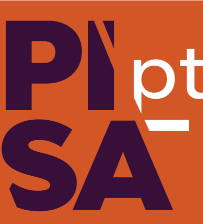A success story? Portugal and the PISA (2000-2018)
 Major international studies, such as TIMSS, PISA, PIRLS or TALIS, have become these days one of the main governance technologies in the fields of education and training. In this set of studies, PISA is, surely, the one which exerts the greatest influence on political decision-makers, school administrators or the media. There is a vast international critical literature (e.g. Carnoy, 2015; Komatsu & Rappleye, 2017; Meyer & Benavot, 2013; Pereyra, Kottoff, & Cohen, 2011) that has questioned this dimension of ‘global governance’. The works on Portugal’s participation in these studies, in particular PISA, are few and very restrict in their approaches (e.g. KNOWNandPOL project; CNE, 2010, 2013).
Major international studies, such as TIMSS, PISA, PIRLS or TALIS, have become these days one of the main governance technologies in the fields of education and training. In this set of studies, PISA is, surely, the one which exerts the greatest influence on political decision-makers, school administrators or the media. There is a vast international critical literature (e.g. Carnoy, 2015; Komatsu & Rappleye, 2017; Meyer & Benavot, 2013; Pereyra, Kottoff, & Cohen, 2011) that has questioned this dimension of ‘global governance’. The works on Portugal’s participation in these studies, in particular PISA, are few and very restrict in their approaches (e.g. KNOWNandPOL project; CNE, 2010, 2013).
Portugal has participated in PISA since its first cycle in 2000. This being a country of the European (semi)periphery which made a very belated expansion of mass schooling (Teodoro,2001), Portugal presented in all the cycles it participated up to 2012 results that fell below OECD average. In 2015, the results surpassed this average in the three domains analysed (Science, Mathematics and Reading) and Portugal is then presented by the OECD as a ‘success case’ in the context of the European (and developed) countries, with a consistent rise since 2006 (OECD, 2016).
The research project, which ran from September 2018 to March 2022 examined all cycles of Portugal’s participation in PISA (and, secondarily, in other international studies in which the country participated), comparing the processes adopted in data collection. Still, the core problem very directly formulated was: what are the implicit and explicit implications of Portugal’s participation in PISA; or, put differently, how have the different national players (policy-makers, school administrators, teachers and their unions, parents’ associations, media) appropriated the process and included the results of that participation in discourses, public policies and professional practices?
This research project was funded by FCT – Portuguese Foundation for Science and Technology (PTDC/CED-EDG/30084/2017)
